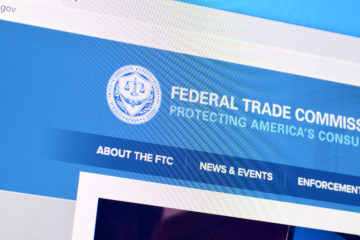In today’s bustling e-commerce landscape, hotel bookings constitute a significant 15 percent of all U.S. online transactions, with over 500 bookings occurring every minute. Despite the evident advantages of direct bookings with hotels, the dominance of Online Travel Agencies (OTAs) like Expedia and Bookings, controlling 90 percent of the online hotel marketplace, poses challenges for hotel owners and franchisees.
However, amidst this landscape, strategic consolidation presents a glimmer of hope. Choice Hotels’ endeavor to acquire Wyndham aims to bolster negotiating power against OTAs, potentially reducing booking commissions and empowering franchisees. A new article in Real Clear Markets by Market Institute President Charles Sauer delves into the transformative potential of strategic mergers in navigating the challenges posed by dominant OTAs while ensuring a vibrant and competitive marketplace for consumers and stakeholders alike.
He writes:
“According to Morning Consult research commissioned by the American Hotel and Lodging Association, hotel bookings make up 15 percent of all U.S. e-commerce, with over 500 bookings occurring every minute. This is an extremely lucrative business model and generates billions of dollars for Online Travel Agencies (OTAs) every year.
Each year hotels pay more than $50 billion to OTAs like Expedia and Bookings, which control 90 percent of the online hotel marketplace. And, while research shows that booking directly with a hotel equals higher customer satisfaction, the ubiquity of these OTA sites and the aggressive online marketing means that number is likely to only get higher. And, as those sites grow, and hotels book less of their own bookings, hotels start losing negotiation leverage. This puts OTAs in an extremely powerful position to extract more and more from hotel franchisees.
In this environment, the segmented nature of the hotel industry provides a strategic advantage for OTAs. And, to make matters worse, the franchise model hotels operate on often give OTAs an even larger advantage. In fact, Hilton does not own a single one of its 7,000 properties. This makes it even harder for franchisees to push back against OTA pricing.https://c5dd3052e0f10b5600e8389fd8a9fc2d.safeframe.googlesyndication.com/safeframe/1-0-40/html/container.html
However, the brands can, and one is giving it a shot: Choice Hotels is in the midst of acquiring Wyndham. These two firms represent a similar market capitalization of $6.4 billion and $5.9 billion, respectively. This puts them well below hotel giants like Marriott ($59.7 billion) and Hilton ($40.8 billion). Separately, they’re in a weaker position against the OTAs, but a Choice-Wyndham combination would give them more leverage to negotiate lower commissions. Booking commissions range, but can be up to 30%. Having more negotiating power to lower that fee can put real money back in the pockets of franchisees and give them more resources to invest for direct-to-consumer marketing and other.
Given the current market there is a path where OTAs become the dominant force in the hotel market, and hotel franchisees continue to hemorrhage profit. What Choice is attempting to do is avoid this problem, give themselves a bigger booking platform, and at the same time increase their brands leverage with OTAs. This should be cheered on, because at the end of the day, this means more competition in the market, which should also lead to lower prices and more access for customers.
Yes, it is true – consolidation can lead to more competition. It just comes down to an idea that some have a hard time grasping: businesses are multifaceted. That is a part of the fast-moving modern economy.”


